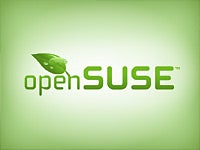

Enterprise Linux vendor SUSE this week updated its Linux server management technology, with a little help from an open source rival.
SUSE Manager 1.7 is based on the open source Spacewalk server management project. Spacewalk is an open source effort started by SUSE’s Linux rival Red Hat back in 2008. Spacewalk is also the open source version basis for Red Hat’s Network server management product.
SUSE Manager has been based on Spacewalk since early 2011, as SUSE moved away from its prior server management system, Zenworks Linux Management.
The new SUSE Manager 1.7 release is based on the Spacewalk 1.7 release and can manage both SUSE Linux as well as Red Hat servers.
“We productized the open source project, provide a very streamlined installation experience with our SUSE Manager software appliance, offer a reliable maintenance roadmap, and add our award-winning enterprise support,” SUSE spokesperson Torsten Hallmann said in an email to ServerWatch. “This is comparable to how we productize and harden Linux for enterprise use.”
 Hallman added that SUSE is actively participating in the Spacewalk development by contributing all enhancements and security fixes to the upstream.
Hallman added that SUSE is actively participating in the Spacewalk development by contributing all enhancements and security fixes to the upstream.
One of the key new additions in SUSE Manager 1.7 is support for OpenSCAP. OpenSCAP is an open source implementation of Security Content Automation Protocol (SCAP). Red Hat has been including OpenSCAP in its Linux products for at least two years, starting with the introduction of Fedora 14. SCAP creates and enables a baseline for what a secure system should be and then can be used to measure deviation to identify risk.
“So you are able to define profiles that are triggered proactively by SUSE Manager on the client to show if your system is still in a good state with regards to security,” Hallman explained.
He added that with SUSE Manager, SUSE is providing an example openscap profile with the openscap-content.rpm in the SUSE Manager Tools channel beginning with SLES 11 SP2.
SUSE Manager is not just a standalone effort, as it also integrates as part of SUSE’s overall build, manage and deploy workflow.
“SUSE Manager 1.7 integrates with SUSE Studio and provides the ability to deploy appliances that you created in SUSE Studio onto XEN/KVM hosts,” Hallman said.
SUSE Studio is a technology that enables users to build their own Linux appliances, using either the SUSE Studio on-premise or hosted service. Moving forward, Hallman noted that integration with SUSE’s OpenStack cloud services is also planned for a future release.
Sean Michael Kerner is a senior editor at InternetNews.com, the news service of the IT Business Edge Network, the network for technology professionals Follow him on Twitter @TechJournalist.
Property of TechnologyAdvice. © 2026 TechnologyAdvice. All Rights Reserved
Advertiser Disclosure: Some of the products that appear on this site are from companies from which TechnologyAdvice receives compensation. This compensation may impact how and where products appear on this site including, for example, the order in which they appear. TechnologyAdvice does not include all companies or all types of products available in the marketplace.